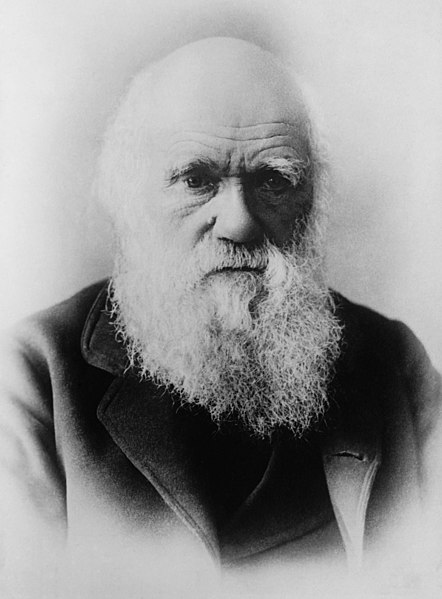 |
| Charles Darwin (Credit: Wikimedia) |
England's physicians of the time could not properly diagnose the syndrome of cyclic vomiting, although they tried by suggesting its etiology was anything to do with allergies, gout, and mental overwork. But what of an assessment of Darwin's symptoms by modern physicians of today?
On Friday, May 6, modern physicians gathered to discuss Darwin's lifelong illness at the 18th Historical Clinicopathological Conference sponsored by University of Maryland Health Care System. The conference previously has examined and provided modern medical diagnoses of other prominent historical figures such as Abraham Lincoln and Edgar Allan Poe. The scientists chose Darwin for this year's conference to commemorate the naturalist's 200th birthday.
At the conference, the medical researchers determined that the nature of Darwin's sickness may be explained by multiple gastrointestinal illnesses he might of contracted while traveling to remote areas of South America, the Pacific, Far East, and Africa. A transmission of parasites, for example, may have led to what would become chronic "Chagas disease" and "peptic ulcer disease," further explaining the onset of Darwin's cardiac symptoms and eventual heart disease.
Chagas disease is caused by the parasite Trypanosoma cruzi, which transmitted to humans by blood-sucking insects known as reduviid bugs found throughout Mexico, Central and South America living in mud or adobe huts and feeding on humans. The insects probably bit at Darwin's body as he was sleeping, passing the parasites via their feces, then entered his body through eyes, mouth or an open wound facilitated by the unsuspecting victim scratched himself. Chagas disease can have an acute phase in which symptoms of nausea and vomiting combined with headaches could last for weeks or months, then if untreated can lead to a chronic phase.
“Chagas would describe the heart disease, cardiac failure or ‘degeneration of the heart’ — the term used in Darwin’s time to mean heart disease — that he suffered from later in life and that eventually caused his death,” said Sidney Cohen, M.D., who led the diagnosis and was quoted in a press release. Dr. Cohen is a professor of medicine and director of research of Jefferson Medical College of Thomas Jefferson University in Philadelphia.
Peptic ulcer disease is caused by infection with the common bacteria, Helicobacter pylori. Darwin probably contracted the bacteria from contact with saliva or feces of another human or from drinking untreated water. Then, the bacteria making itself at home in Darwin's stomach by creating a low-acid "buffer zone," could also explain symptoms of severe abdominal pain, bloating, frequent burping, nausea and vomiting.
“H. pylori and Chagas disease can be contracted in the same areas of the world and often occur together,” Cohen said.
Why was it supposed that Darwin suffered from two or more illnesses? According to Cohen, “Darwin’s lifelong history does not fit neatly into a single disorder based historically only upon symptom assessment. I make the argument that Darwin had multiple illnesses in his lifetime.”
Medical History
The clinicians evaluated Darwin's medical history, which included a look at his excellent health as a child (with an occasional upset stomach; happens to us all) followed by his leaving England at age 22 on a five-year voyage on the Beagle. During his travels, Darwin suffered from frequent seasickness, fevers, two instances of food poisoning, intermittent boils, an inflamed knee and arm, and "Chilean fever."
A year after his arrival back in England, at age 27, began what would become a lifelong illness. He complained of violent cardiac palpitations and headaches at 29, which returned once at 51 and just before he died. In his 30s he had a few episodes of fingertip numbness, buzzing in his head, seeing stars, involuntary hand twitching. In his 50s, he complained of weakness and intermittent rheumatism. At age 57, he also was bruised badly after his horse fell and rolled on him.
A look at his diet and lifestyle suggests Darwin's behavior was not unlike those of most other scientists of the day. It included smoking the occasional cigarette and cigar, moderate drinking of brandy, wine and port, and walking as his only exercise.
His family history included his father, who was morbidly obese, and suffered from gout. He had an older brother who struggled with depression and died at age 77 of an unknown cause and three sisters who all died of unknown causes.
In the last decade before his death, Darwin's health seemed to improve as his chronic cyclic nausea and vomiting eased up. But his memory began to decline and at age 72, he suffered a sudden "fit of dazzling" and irregular pulse while hiking. He developed a cough alleviated by quinine. Later one evening while eating dinner, he was seized by dizziness and he fainted while trying to reach the couch. He regained consciousness, drank brandy and seemed to recover, but then started to vomit relentlessly until what lasted until the next day when he lost consciousness again and died.
At the time of his death at age 73, he was diagnosed with "angina attacks with heart failure and degeneration of the heart and greater blood vessels."